When Carole Olinger first stepped into the CloudFest Hackathon in 2017, the event was small, exclusive, and structured around company-backed projects. “The whole concept was very different back then,” she recalls. “Projects were pitched by CloudFest partners, and many of them weren’t even open source.”
The assumption was that if you put a group of developers in an amusement park and gave them projects to work on, they’d naturally be interested. But in practice, engagement was limited—people weren’t motivated to spend their free time on projects that didn’t directly benefit them or the open-source ecosystem.
Since taking over as Head of CloudFest Hackathon in 2018, Olinger has gradually reshaped the event into something entirely new. Now in its eighth year, the Hackathon is a fully open-source, community-driven, and inclusive event where every project must contribute to the open web. When the event returns March 15-17 at Europa-Park, Germany, teams will once again collaborate, build, and push the boundaries of open-source innovation.
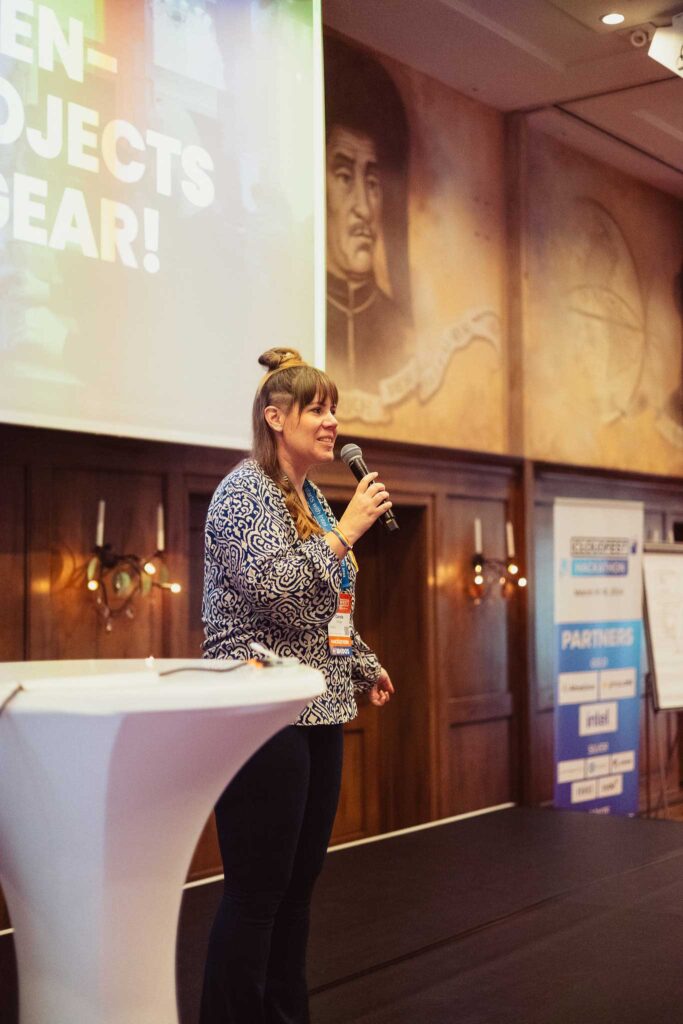
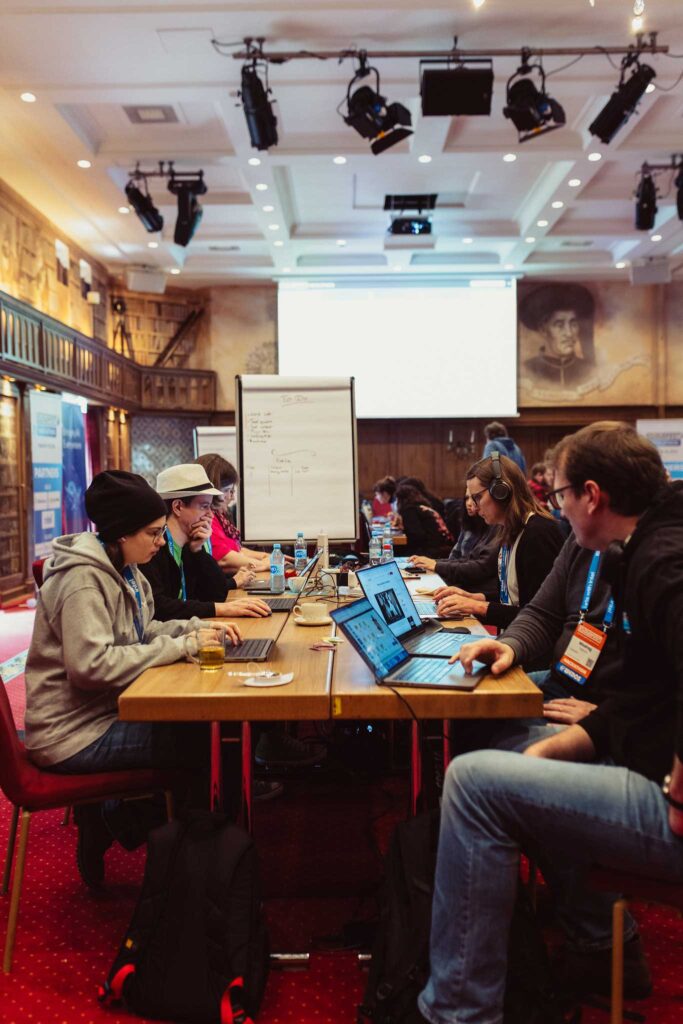
Open-source collaboration
The shift to an open-source-first model didn’t happen overnight. When Olinger took the helm in 2018, she saw the potential for something bigger than a corporate-sponsored coding sprint. The first change was fundamental: every project had to contribute to open source, ensuring that participants weren’t just writing code for a single company’s benefit, but for the broader open web.
This shift redefined the event’s purpose. It was no longer just a fun weekend for developers—it became a space where contributors could collaborate on projects with lasting impact.
But Olinger knew that open source alone wasn’t enough. Great projects don’t just need developers—they need designers, accessibility advocates, project managers, and marketers. A brilliant tool won’t gain traction if no one knows about it, and a promising innovation can stall if it isn’t built with real-world users in mind.
“We always try to include a mix of skills because, as I always say, ‘What’s the value of brilliant code if no one spreads the word about it?’” Olinger says.
As the Hackathon grew, so too did its focus on diversity and inclusion. In her first year, Olinger had been one of only two women in the room. Today, the Hackathon actively works to welcome women, non-binary participants, and contributors from underrepresented communities through targeted outreach and a broader selection process. Scholarships, including those in partnership with Groundbreaker Talents, have helped open doors for new attendees, and last year, Can everyone use ____?, a female-led accessibility project, took home the Hackathon’s top award—proof that the event’s culture has evolved.
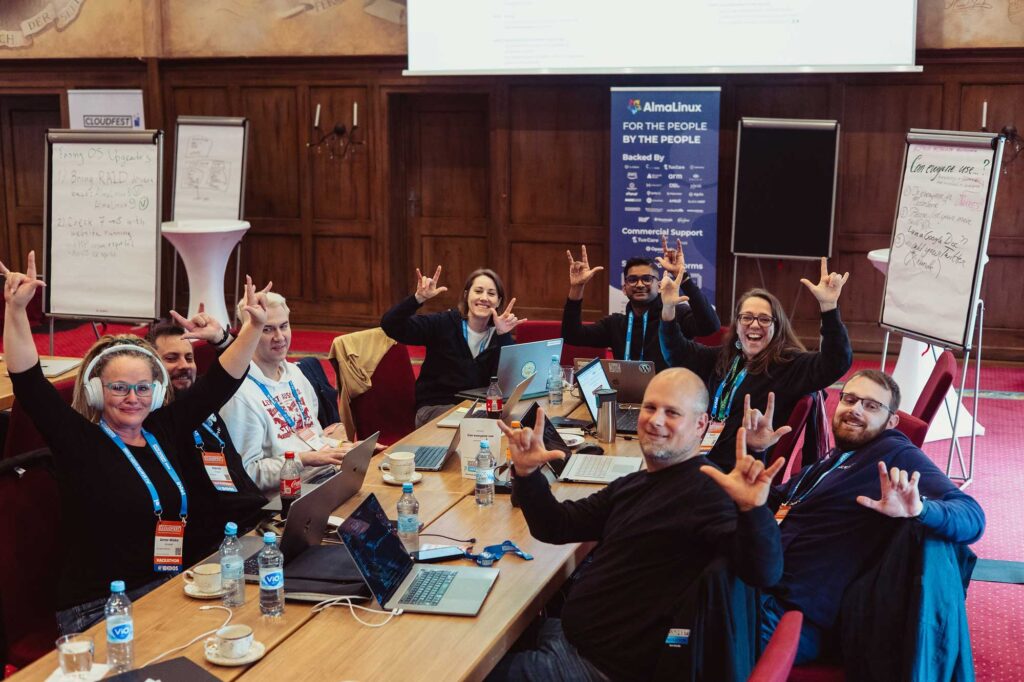
To ensure projects are set up for success, the Hackathon also has a dedicated project support team, including Alain Schlesser (Yoast), Lucas Radke (Automattic), and Thierry Muller (Google). These mentors bring decades of open-source expertise, helping project leads refine their ideas, evaluate feasibility, and assemble well-rounded teams.
This year’s projects
Interest in the Hackathon is higher than ever. This year, more than 400 people applied for just 100 available spots, making selection more competitive than ever. Of the 22 project applications submitted, only 10 made the final cut—a testament to the event’s growing reputation as a hub for meaningful open-source collaboration.
“These projects didn’t come from us,” Olinger says. “They came directly from the community, which shows how strong the event’s reputation has become. We no longer need to seek out ideas—people are bringing them to us.”
This year’s selected projects span a broad mix of AI-driven development, cross-CMS collaboration, security, and accessibility:
AI & Federated Systems —
- Peer-to-Peer Federated RAG Framework – A decentralized AI knowledge-sharing network that improves information retrieval across different domains. (Led by Wesley Stessens & Franco Lombardo)
- WP-CLI as an MCP Host – Integrating AI-powered development tools into WordPress CLI workflows, making AI-driven site management possible in local development. (Led by Pascal Birchler, Google)
Cross-CMS & Open Web Initiatives —
- CMS Freedom – Helping users migrate sites seamlessly between CMS platforms like WordPress, TYPO3, and Jekyll by developing missing theme and data type adapters. (Led by Patricia BT & Dennis Snell, Automattic)
- CMS Health Checks – A standardized health monitoring system for WordPress, Joomla!, TYPO3, and Drupal, ensuring better performance insights and system reliability. (Led by Oliver Bartsch, b13 GmbH)
- Federated Community Events – Creating a decentralized alternative to Meetup.com for local organizers, enabling discovery and engagement across the Fediverse. (Led by Andreas Heigl & Matthias Pfefferle, Automattic)
Security & Infrastructure —
- Securing the Supply Chain for OSS – Developing tools to help open-source projects meet increasing regulatory security requirements. (Led by Néstor Angulo de Ugarte, Patchstack & John Blackbourn, Human Made)
- CMS Cloud Manager – Simplifying hosting management for CMS users, allowing non-technical users to set up and maintain their own infrastructure. (Led by Markus Kostrzewski, Hetzner & Javier Casares, ROBOTSTXT.es)
- WordPress Staging Environment Manager – A multi-platform tool to automate and secure staging environments for WordPress and WooCommerce. (Led by Tadas Pukas & Paulius Lescinskas, Omnisend)
Accessibility & Inclusivity —
- AIccessibility Content Updater – A WordPress plugin that improves accessibility by adding skip-to-content links, AI-generated alt text, and ARIA attributes. (Led by Nemanja Cimbaljevic, GoDaddy)
- Accessible Infographics – A new standard for screen-reader-friendly infographics, helping make visual information more accessible. (Led by Anne-Mieke Bovelett & Nina Jameson, Digital Accessibility Expert)
Over the course of three days, participants will develop proof-of-concept solutions for these projects, working toward tools that could become widely adopted open-source solutions. But as past Hackathons have shown, building something great in a short timeframe is only half the battle—what happens after the event is just as important.
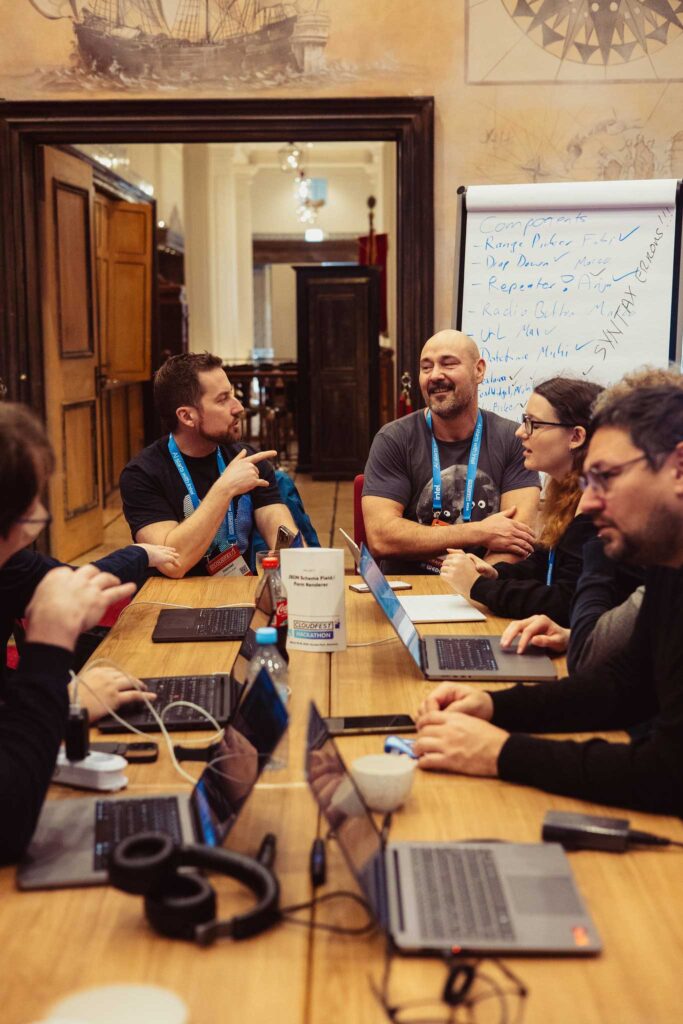
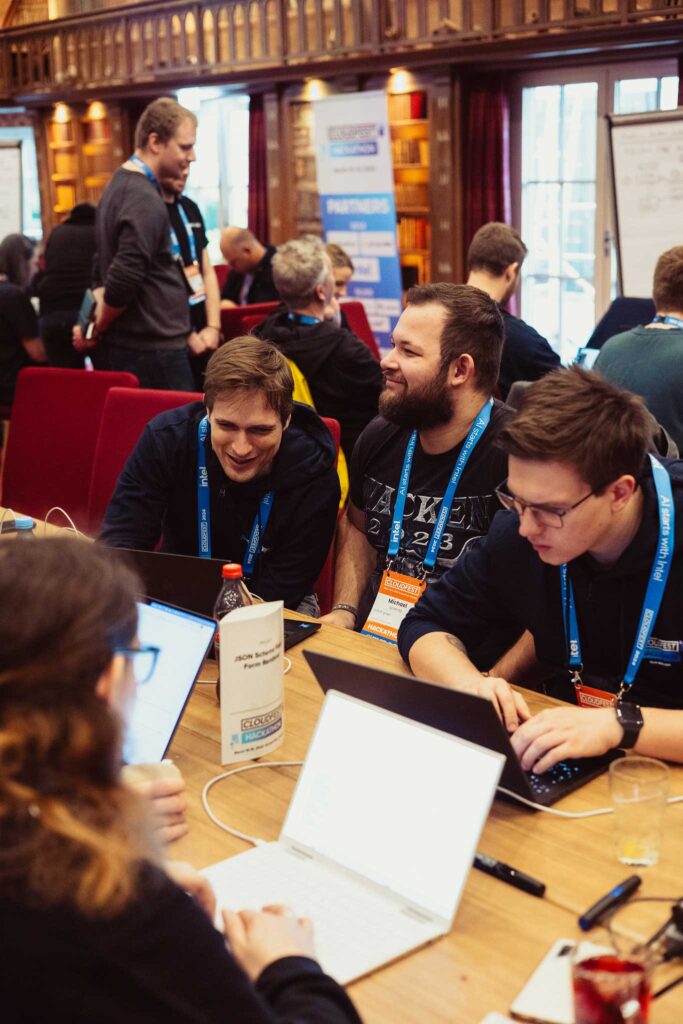
Ensuring projects have a future
While the Hackathon has a strong track record of launching projects, sustaining them beyond the event has been a challenge. In the rush of an intense three-day sprint, teams produce promising prototypes, but once participants return to their regular jobs, momentum often stops. Without structured follow-up, even the most exciting ideas risk fading into obscurity.
Olinger is well aware of this challenge. Some past Hackathon projects have gone on to make a real impact, like Domain Connect, which started at CloudFest and is now an open standard, or contributions to WordPress Playground and Google’s Privacy Sandbox. But for every project that thrives, others struggle to gain traction. “Some projects take off, while others stall out after the Hackathon,” she says. “It’s not because they lack potential—it’s often because people go back to their jobs, and there’s no structured follow-up to keep the momentum going.”
To bridge this gap, CloudFest has ramped up efforts to track and support projects long after the event ends. One major step this year is the expansion of media partnerships, ensuring that projects don’t just get built but also get visibility. Dedicated media teams will be on-site, documenting progress and sharing updates long after the Hackathon wraps. Another focus is follow-up tracking, with organizers checking in on projects 6-12 months later to assess progress and identify potential roadblocks.
Mentorship is also playing a bigger role. While the project support team already helps refine ideas before the Hackathon, organizers are working to establish stronger post-event guidance so project leads aren’t left navigating next steps alone. Additionally, there’s a growing push to connect projects with funding opportunities, helping them transition from prototypes to fully realized tools that can make a lasting impact.
“It’s one thing to build something exciting in three days,” Olinger says. “It’s another to make sure people hear about it, get involved, and help it evolve into something lasting.”
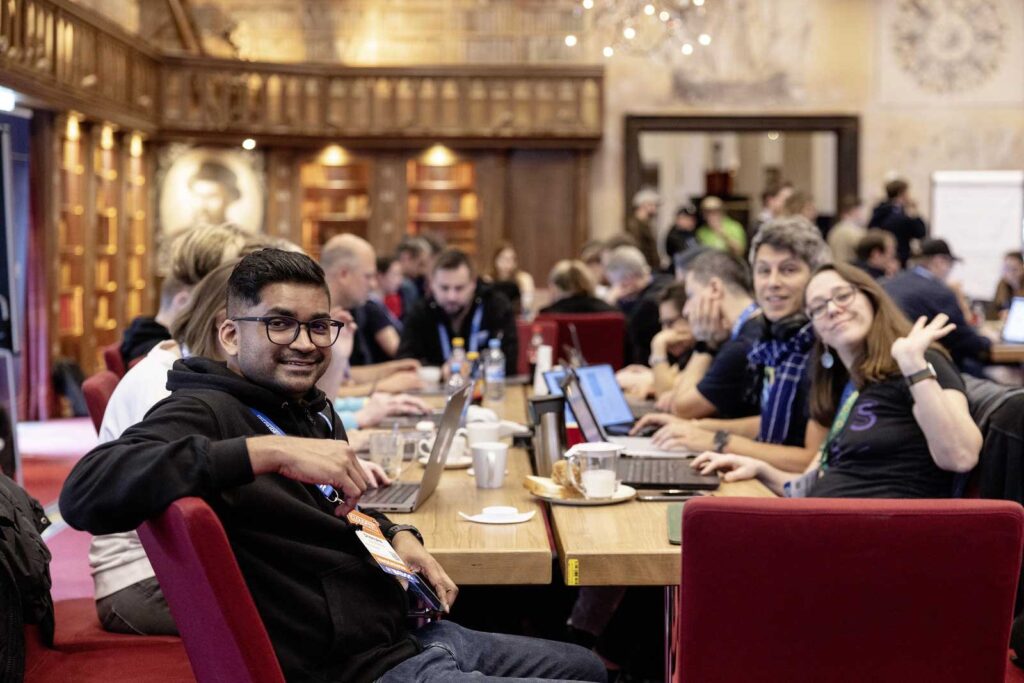
What’s next?
With six years of fine-tuning, the Hackathon has hit its stride. But rather than making it bigger, Carole Olinger is making it better—ensuring projects don’t just get built, but thrive long after the event.
To set teams up for success, she’s introduced structured onboarding so first-time attendees can hit the ground running. New Project Lead Handbooks will help teams stay focused, manage scope, and keep momentum going. And expanded post-Hackathon support will ensure promising projects don’t stall, with follow-ups, mentorship, and visibility to keep them moving forward.
“We could expand to 400 attendees,” Olinger says, “but then it wouldn’t be the same. The intimacy and the impact would get lost.” Instead, she’s doubling down on sustainability over scale, keeping the Hackathon a launchpad for open-source projects that last.
This isn’t just an event where developers build cool stuff. It’s a career-changing, community-building, and industry-shaping initiative that has evolved far beyond its original purpose. Now, the biggest challenge isn’t what happens during the Hackathon—it’s ensuring projects continue beyond the event and that the results reach the wider world.
For Olinger, that mission is personal. “This event is so close to my heart, and I couldn’t imagine giving it up,” she says.
The Repository is a proud media partner of CloudFest Hackathon 2025.
Feature image credit: Roan de Vries.


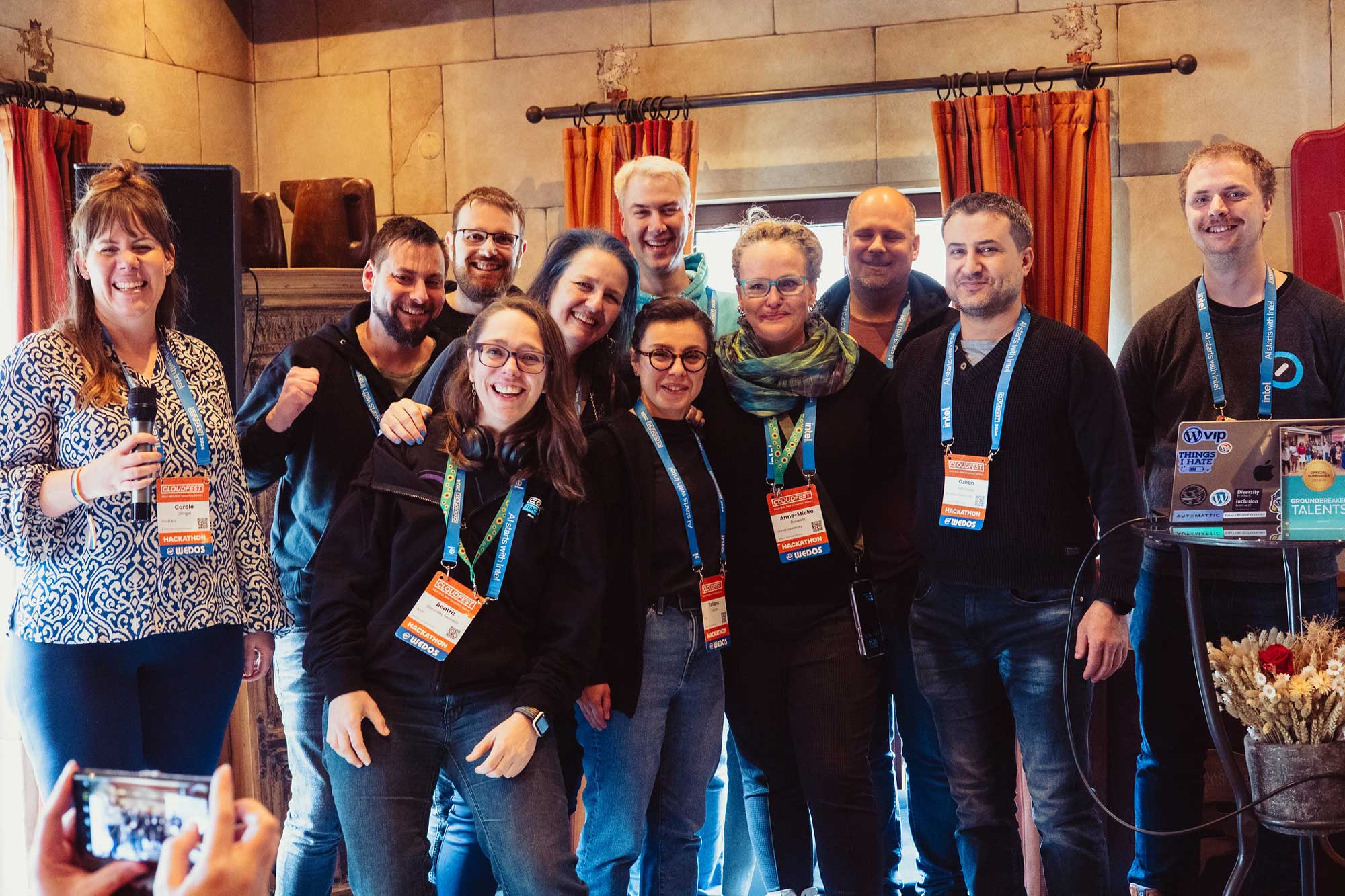
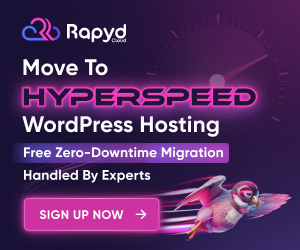


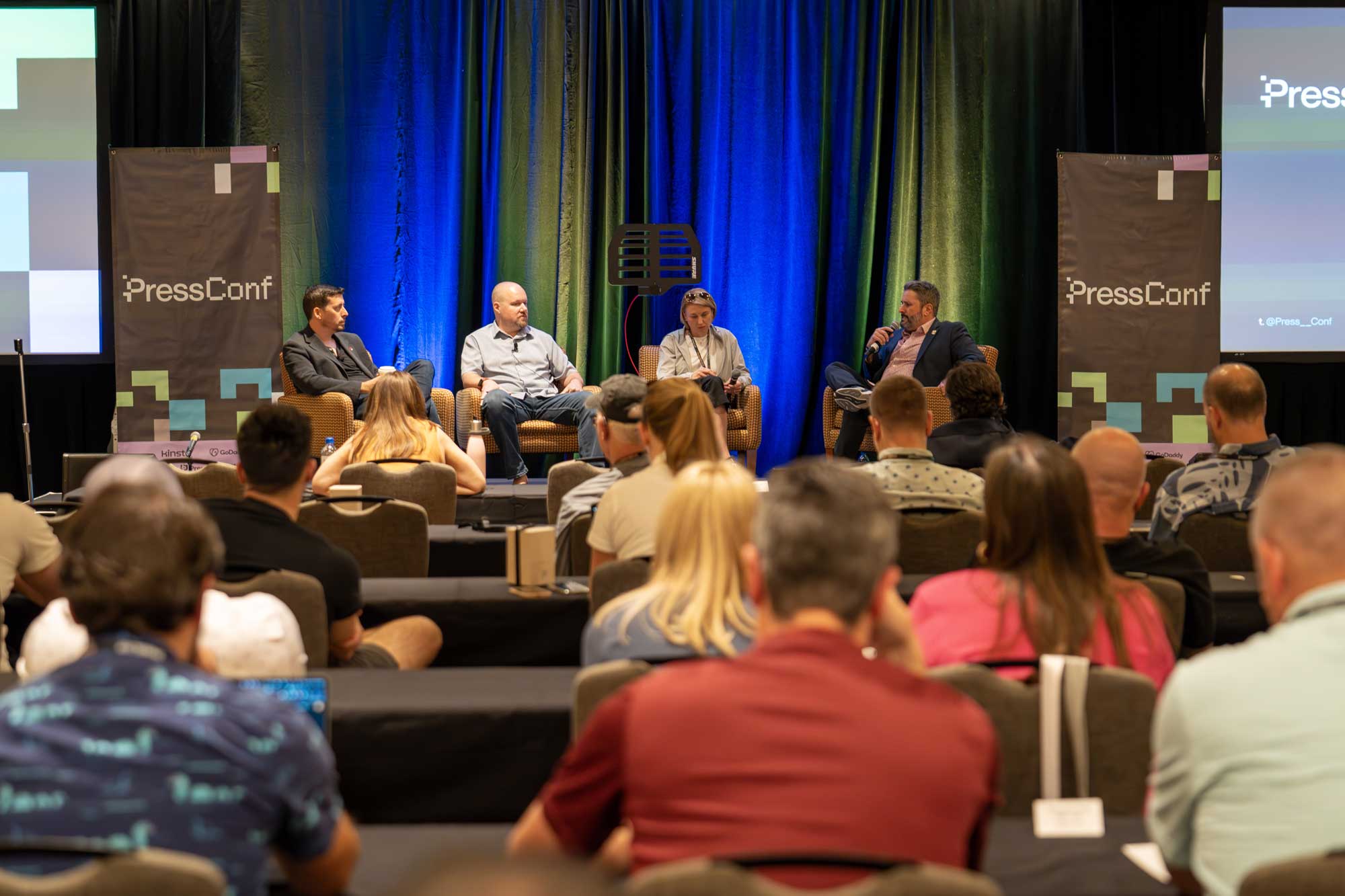
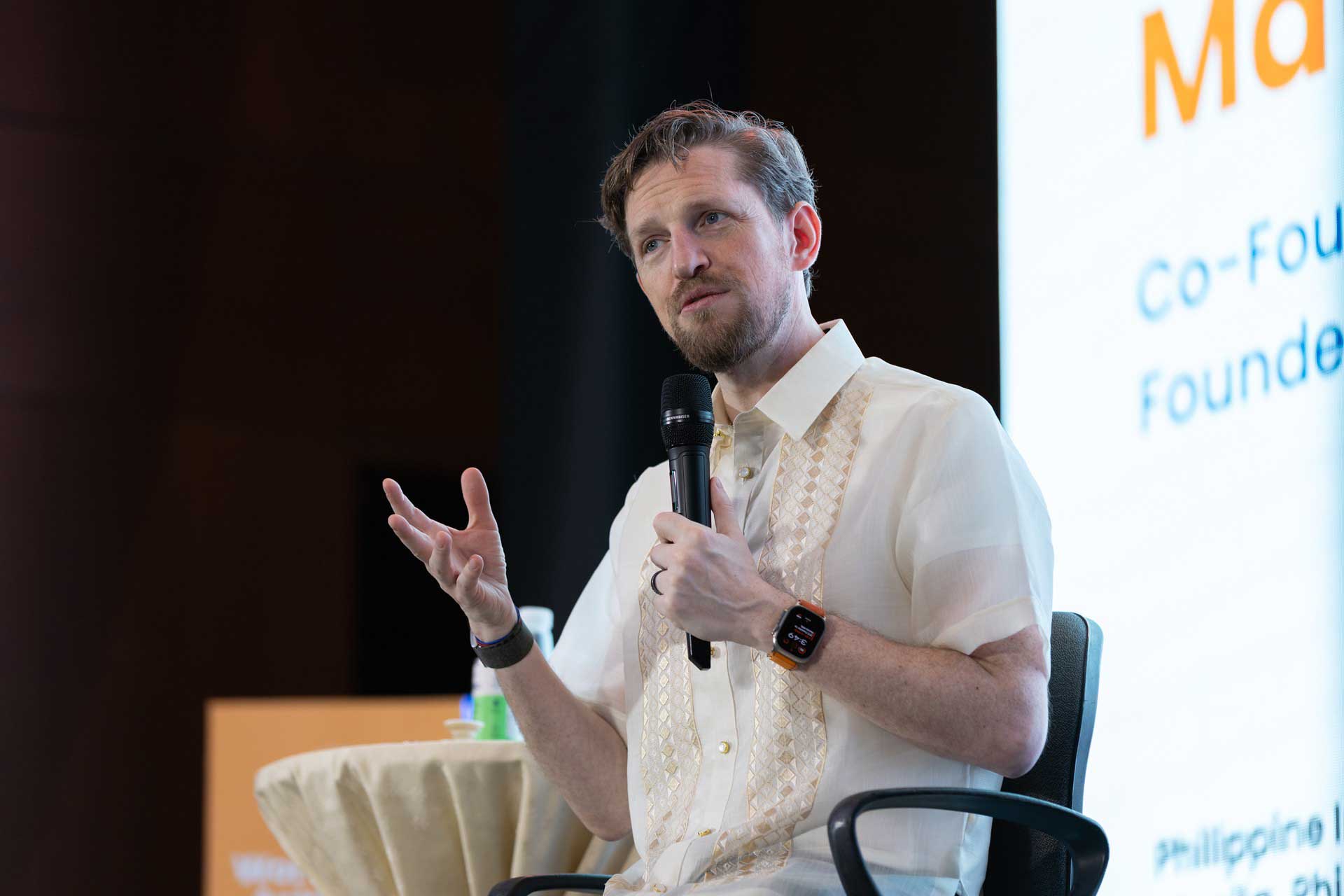
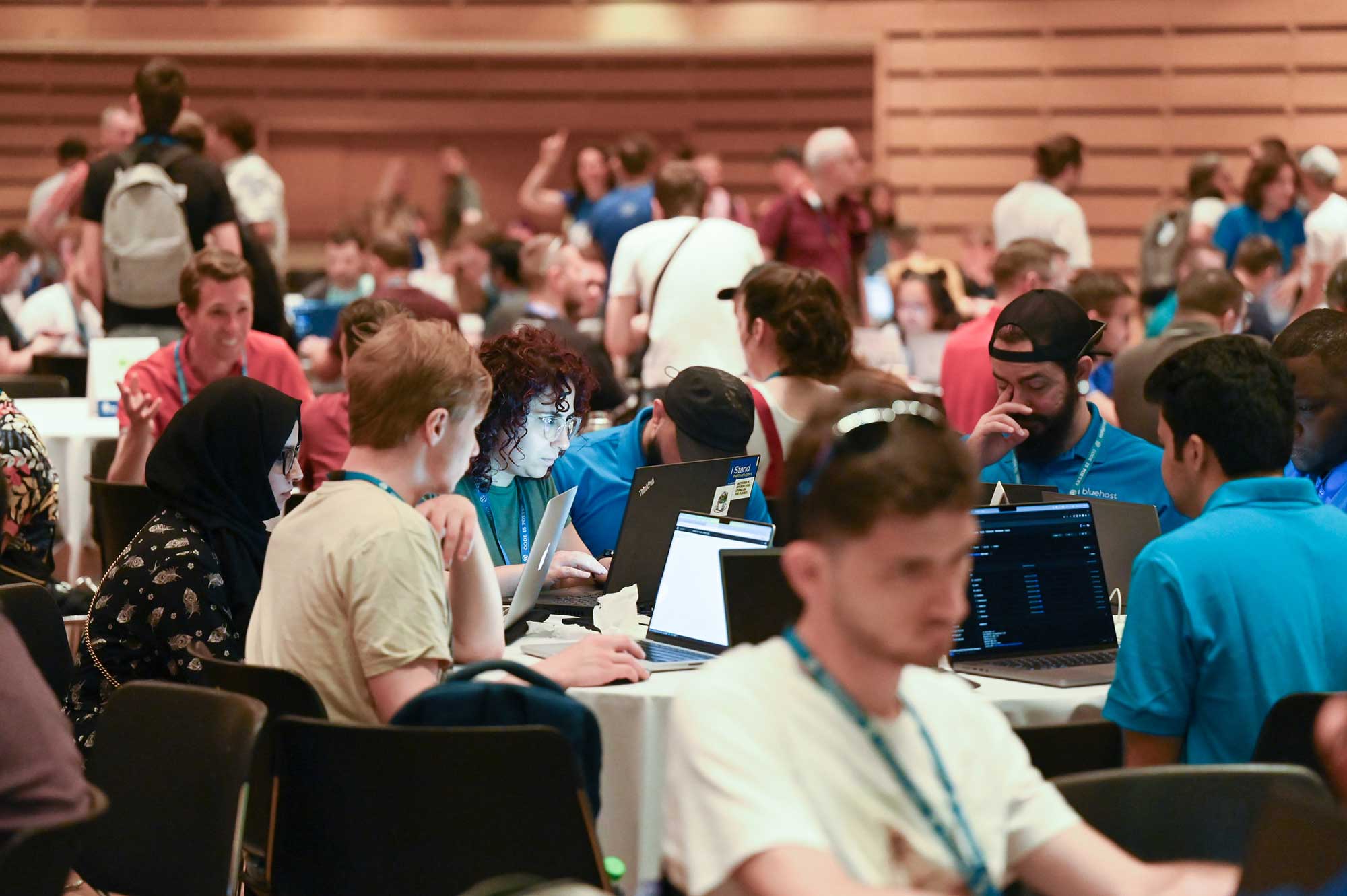
Comments
One response to “CloudFest Hackathon 2025: An Event That’s Hit Its Stride”
Great wrap up about the event and makes me even more excited to join. I can’t wait to finally experience what it’s like to be part of this event.